Timeline
[et_pb_section admin_label=”section”]
[et_pb_row admin_label=”row”]
[et_pb_column type=”4_4″][et_pb_text admin_label=”Text”] 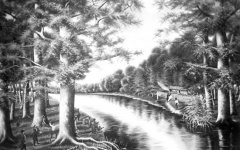

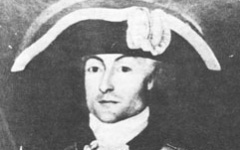

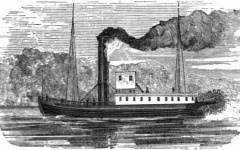

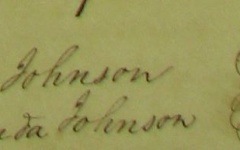

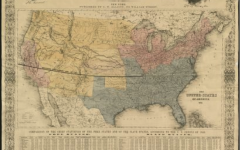



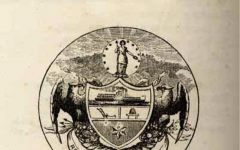

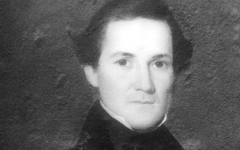

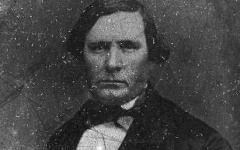

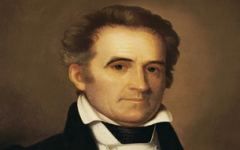

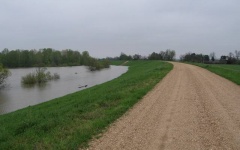

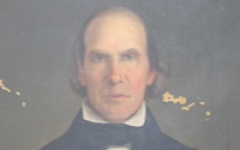

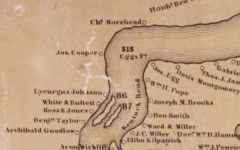

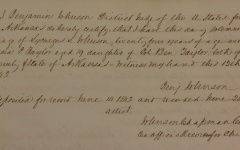

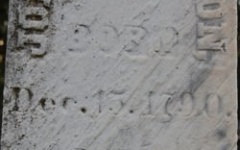

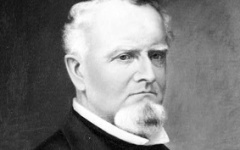

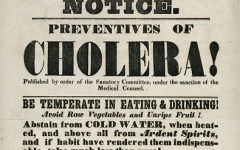

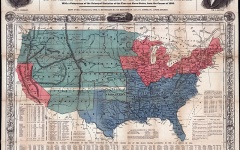

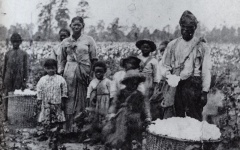

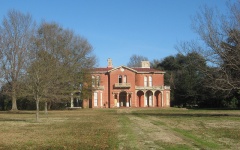

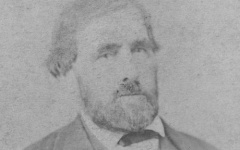

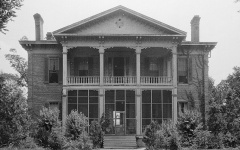



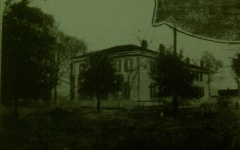



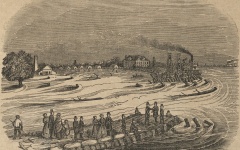

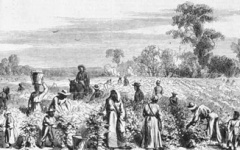



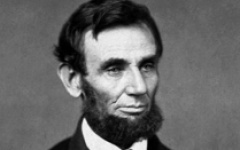

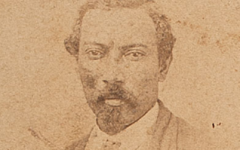



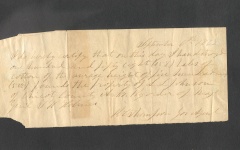

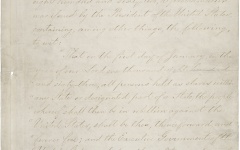



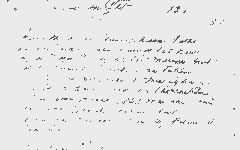

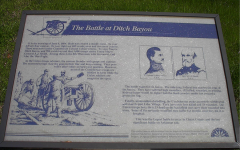

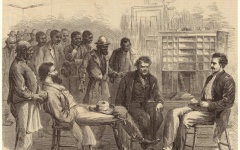

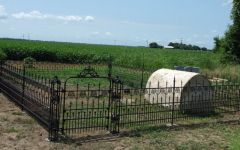

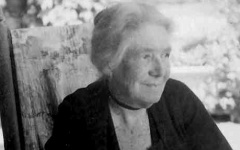

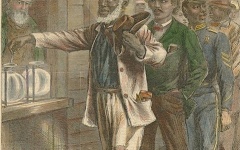

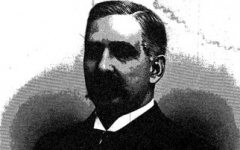

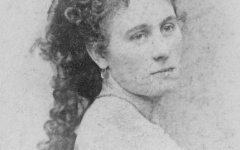

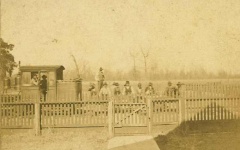



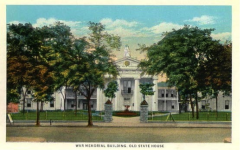

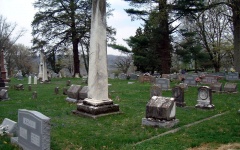



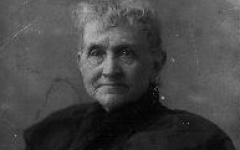

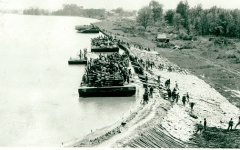

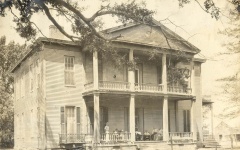

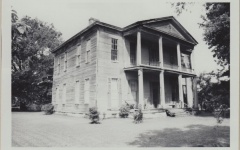

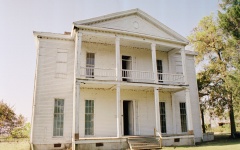



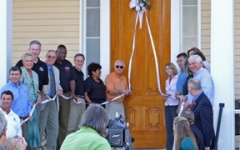
 [/et_pb_text][/et_pb_column]
[/et_pb_row]
[/et_pb_section]
[/et_pb_text][/et_pb_column]
[/et_pb_row]
[/et_pb_section]

Arkansas Post Established
Henri de Tonti (1649/50 - 1704), an Italian-born soldier, explorer, and fur trader in the service of France, establishes Arkansas Post as a French trading post on the Arkansas River approximately 35 miles from the confluence with the Mississippi River.Read more


Spanish Land Grant
Don Carlos de Villemont, commandant at Arkansas Post, receives a Spanish Land Grant along the Mississippi River, including Point Chicot.Read more


Point Chicot
Point Chicot becomes a fueling stop for steamboats seeking cordwood on the Mississippi.Read more


Joel Johnson Marries Verlinda Offutt
Joel Johnson (1790-1846) and Verlinda Offutt (1795-1868) marry in Scott, KY, on February 18, 1817. They have four children: Lycurgus L. Johnson (1818-1876), Julie J. Johnson (1819-Unknown), Betsy Johnson (1825-1841), and Cyrus Johnson (1829-1870). Verlinda dies in 1868 in Kentucky at the age of 72.Read more


The Missouri Compromise
The Missouri Compromise establishes slavery in the Arkansas Territory.Read more


The Trail of Tears
Military escorts move a band of Choctaw Indians through Lakeport on the Trail of Tears.Read more


Arkansas becomes the 25th state
Arkansas becomes the 25th state, a slave state. Michigan becomes a free state in 1837 to maintain a balance of free and slave states.Read more


Arkansas’ First Governor
James Sevier Conway, Ambrose Sevier’s cousin, is inaugurated Arkansas’ first governor on September 13, 1836.Read more


Lycurgus L. Johnson
Lycurgus L. Johnson, Joel Johnson's son, arrives in Chicot County from Kentucky.Read more


Richard Mentor Johnson
Richard Mentor Johnson, U.S. Senator from Kentucky and brother of Joel Johnson, is elected Vice President of the United States under President Martin Van Buren.Read more


Levee Laws
The State Legislature passes levee laws requiring Chicot planters to build levees for flood protection.Read more


Elisha Worthington
Elisha Worthington acquires the 2,215 acre Sunnyside Plantation just north of Lakeport for $60,000. The price includes not just the acreage, but also 42 slaves and several buildings.Read more


Florence Plantation
By 1841 Lycurgus Johnson’s Florence Plantation encompasses 690 acres.Read more


Lycurgus Johnson Marries Lydia Taylor
Lycurgus Johnson, age 24, marries Lydia P. Taylor, 19, on June 13, 1842 in Chicot, Arkansas. The marriage is officiated by Lycurgus' uncle, Benjamin Johnson, who was the Federal Judge for the District of Arkansas.Read more


Joel Johnson Dies
Joel Johnson dies at his Lexington, Kentucky residence on June 16.Read more


Robert W. Johnson
Robert W. Johnson, nephew of Joel Johnson, is elected to the U.S. House of Representative representing Arkansas. (Photo courtesy of the Arkansas History Commission)Read more


Cholera and Influenza
In the winter of 1848-1849, cholera and influenza sweeps through the Mississippi River Valley likely taking the lives of Lycurgus and Lydia’s first three children, Joel, Benjamin Taylor, and John Henry at the Florence Plantation in Arkansas.Read more


The Compromise of 1850
Compromise of 1850 passes the U.S. Congress allowing California to enter as a free state, abolishing slavery in the Washington, D.C. organizing Texas and New Mexico without reference to slavery, and passing a stronger fugitive slave law.Read more


Lakeport Estate
In 1850 the Lakeport estate contains 4,013 acres, 132 slaves, 20 horses, 34 mules, and 85 cattle and produces 4,000 bushels of corn, 475 bales of cotton, 300 bushels of potatoes, 300 bushels of sweet potatoes, and 20 bushels of peas and beans.Read more


Mount Holly
In ca. 1856 Mount Holly, an Italianate plantation home that influenced Lakeport’s design, is constructed for Margaret Johnson Erwin Dudley on Lake Washington in Washington County, Mississippi. The home is later used as headquarters for relief committees in the 1927 flood.Read more


Lycurgus Assumes Ownership over Lakeport
Lycurgus assumes ownership over Lakeport following the lengthy settlement of his father’s estate.Read more


Belmont Plantation Constructed
Belmont Plantation home is constructed across from Lakeport in Washington County, Mississippi for William W. Worthington. The Lakeport Plantation style will be deeply influenced by this Greek Revival home. The home is plundered twice in 1863--once in the early spring, and again in June.Read more


Lake Lee formed
Lake Lee is formed when land-owners and their slaves, using explosives, create a cut-off at American Bend.Read more


Willoughby (Wayside) Plantation Constructed
Willoughby (Wayside) Plantation home is constructed across from Lakeport in Washington County, Mississippi for Samuel Worthington. Many architectural elements of the Italianate style home resemble elements on Lakeport.Read more


Lakeport Plantation Home Constructed
Lakeport Plantation Home is constructed in the Greek Revival style.Read more


Flooding
In 1858 severe flooding hit the Lower Mississippi Valley. Levee building remained the dominant form of flood control along the river. By 1858 over 1,000 miles of levee stretched along the banks of both sides of the Mississippi River.Read more


The Johnsons Move into the Lakeport Plantation Home
In 1860 Lycurgus Johnson and his family move into Lakeport.Read more


The Lakeport Plantation
By 1860 Lakeport has 4,475 acres and produces over 1,300 bales of cotton and 10,000 bushels of corn with the labor of 155 slaves.Read more


Abraham Lincoln Elected President
In November 1860, Republican Abraham Lincoln is elected president of the United States, taking the oath of office on March 4, 1861.Read more


James W. Mason
James W. Mason (1841-1874) was the son of Elisha Worthington (1808-1873) and an unknown African American enslaved laborer. In 1867 he becomes the first documented African-American postmaster in the United States. He later serves as a delegate to the 1868 Arkansas constitutional convention and is a state senator.Read more


Elisha Worthington Leaves for Texas
Elisha Worthington takes most of his slaves and livestock to Texas and leaves his children, James W. and Martha W. Mason, both born to a slave he maintained a relationship with, in charge of his plantations.Read more


Order to Burn Cotton
In March 1862 Maj Gen Thomas C. Hindman, military commander of Confederate Arkansas, orders “cotton adjacent to the enemy’s lines should be burned immediately.”Read more


Emancipation Proclamation
In January 1863, the Emancipation Proclamation goes into effect. The Emancipation Proclamation declares that all people held as slaves in the states still in rebellion are free.Read more


Victor M. Johnson Born
Victor M. Johnson is born to Lycurgus and Lydia Johnson at Lakeport.Read more


Lakeport Raid
In the winter of 1863-4, 1st Regiment Mississippi Marine Brigade (U.S.) raids Lakeport leaving “one mule for Mrs. Lydia Johnson...to haul wood for the children.”Read more


Battle of Ditch Bayou
The Battle of Ditch Bayou, approximately 6 miles from Lakeport, is fought. The battle is a Union victory, but Confederate strategy inflicted high Union casualties. The battle is part of a Federal effort to drive Confederate forces away from the Mississippi River and cease attacks on Union shipping.Read more


Freedmen's Bureau
In March 1865 the Freedmen’s Bureau is created to help former slaves adjust to freedom. In July 1866 5,000 freedmen work plantations along the Mississippi River and Lake Chicot according to the Freedmen’s Bureau.Read more


Johnson Children Deaths
Cable Johnson (March 15, 1865 - August 5, 1867) dies at 2 1/2 years old on August 5. Julia J. Johnson (July 12, 1860 - November 1, 1869), Cable’s 9 year old sister, dies on November 1. Both are buried in the children’s cemetery behind Lakeport.Read more


William Starling Purchases Sunnyside
In 1868 the William Starling Company purchases the Sunnyside Plantation. Laura "Lollie" Starling (1854-1946), William's daughter, describes details of the Lakeport home and the marriage of her brother, Charles, to Annie Taylor Johnson at Lakeport in October 1878 in "Memories."Read more


Wage and Sharecropper Contracts
From 1867-8 the Lakeport employs both wage and sharecropper contracts. In 1867 African American farmers, businessmen, and soldiers were also allowed to vote for the first time.Read more


John Calhoun and Linnie Adams Marry
Linnie Adams, niece of Lycurgus and Lydia Johnson and daughter of David and Betsy Adams marries John Caldwell Calhoun, grandson of the South Carolina senator and Vice President, on December 8, 1870 in Chicot, Arkansas.Read more


Issac Worthington, Jr. Marries Mary (May) Johnson
In November 1870 Mary (May) Johnson (1848-1910) marries Isaac Worthington, Jr. (1847-1913) in Chicot, Arkansas.Read more


Murder of Walthal G. Wynn
A black attorney, Walthal G. Wynn (also referred to as "Walthall G. Wynn"), is stabbed to death by a white man, John Sanders, in Curtis Garrett’s Lake Village store, while a third white man, Jasper Dugan, guards the store entrance to prevent Wynn from escaping the stabbing.Read more

Unrest Among Black Citizens
After word spreads about Wynn’s murder, black citizens become angry and request that Judge James W. Mason allow Wynn’s body to be viewed in public. Judge Mason grants this request and Wynn’s body is put on display in the County courthouse.Read more

Chicot County Massacre
The public display of Wynn’s body feeds anger over the murder and incites a violent racial clash. Many white Chicot County residents flee to nearby river towns. A mob of black men take the three white men accused of Wynn’s death from the jail by force and shoot them to death.Read more


Arkansas General Assembly
In 1874 Lycurgus Johnson is elected to the Arkansas General Assembly.Read more


Lycurgus Johnson Dies
Johnson suffers from a severe gastrointestinal disorder that eventually takes his life. He dies on August 1, 1876, in Wilmington, Delaware, where he had gone for medical treatment at 58 years old.Read more


Mississippi Floods
Mississippi River floods Chicot County.Read more


Lydia Johnson Dies
Lydia Johnson dies at Lakeport. The property is divided among the children with Linnie Johnson receiving the Lakeport home and its furnishings.Read more


Flood of 1927
The Flood of 1927 was the most destructive and costly flood in Arkansas history. (Lakeport is pictured in the background.)Read more


Lakeport Sold
Following the flood of 1927, Victor Johnson sells Lakeport to Sam Epstein for $30,000; Victor and his family move to Memphis. Upon Epstein's death in 1944, his son-in-law, Ben Angel, served as estate trustee and oversaw management of the estate. Neither Sam Epstein nor any of his descendants ever live in at Lakeport.Read more


National Register of Historic Places
On November 20, 1974, the Lakeport is added to the National Register of Historic Places.Read more


Sam Epstein Angel Donates Lakeport
Sam Epstein Angel, Ben Angel's son, donates the Lakeport Plantation Home to Arkansas State University.Read more


Restoration Begins
Arkansas State University’s restoration of Lakeport begins.Read more


Grand Opening
Lakeport opens to the public.Read more



